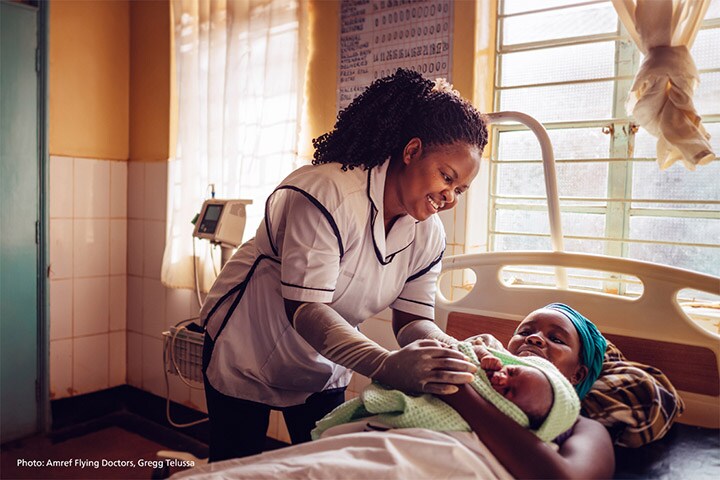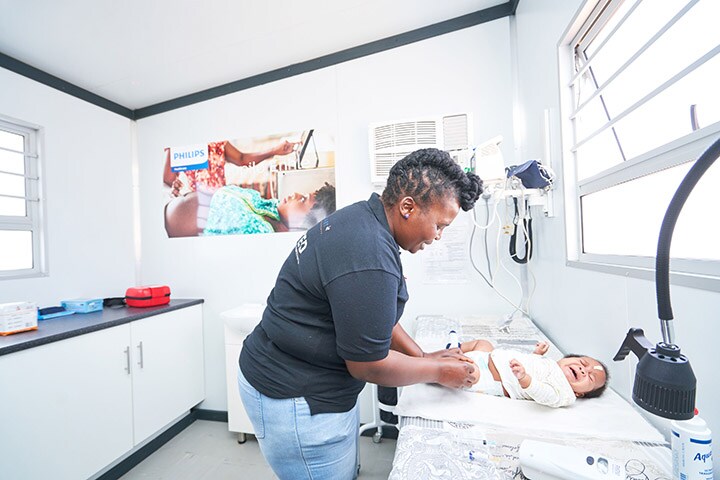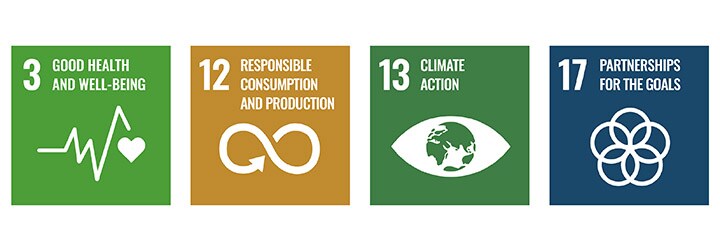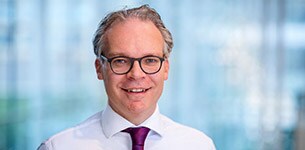The chances of a mother or baby surviving childbirth should not depend on where the birth takes place, but too often it does [1].
Every day more than 800 women around the world die – about one woman every two minutes – from mostly preventable causes related to pregnancy and childbirth [2]. In 2017, approximately 86% of the hundreds of thousands who died during pregnancy or childbirth were women in sub-Saharan Africa and Southern Asia [3]. Sub-Saharan Africa also has the highest neonatal mortality rate in the world and accounts for 43% of the 2.4 million newborns in 2020 who did not survive globally, many of whom suffered from conditions associated with lack of quality care [4].
We cannot allow this to continue.
I grew up in rural Kenya with parents who were passionate about supporting good health for all mothers and children. I still remember the difficulties people faced getting the medical care they needed.
Today, I am grateful to have the privilege to work at a leading health technology company, where I get to be part of collaborative efforts to make healthcare more equitable and accessible. At Philips, our purpose is to improve people’s health and well-being through meaningful innovation. We aim to improve the lives of 2.5 billion people a year by 2030, including 400 million in underserved communities.
Setting specific targets in underserved communities helps us make an impact in places where care is most needed. Our commitment to access to care is close to my heart. The need is urgent to ensure everyone in the world – especially mothers and children – can live healthy lives.

Innovating for equitable maternal and child healthcare
A staggering 94% of maternal deaths occur in low- and middle-income countries [5]. My father spent much of his life studying this problem and in 1984 published Maternal and Child Health in Rural Kenya: An Epidemiological Study, which includes collected data on nutrition, health behaviors and attitudes, and maternal and perinatal mortality in rural Kenya. Studies like his show the considerable influence social determinants have on health outcomes [6].
For example, health literacy can be a significant contributor to poor maternal and child health [7]. One way Philips is helping increase maternal health literacy and encourage healthy behaviors is through high-risk pregnancy referral cards in Kenya. Tested illustrations support important conversations between caregivers (e.g., midwives, community health workers, birth companions) and pregnant women. After validating the efficacy of the high-risk pregnancy referral cards, Philips, Philips Foundation, the International Committee of the Red Cross and Kenya Red Cross Society made the cards available in four counties, reaching more than 280,000 women.
Another way Philips is supporting health literacy for underserved women is through our ongoing partnership with UNFPA, the United Nations sexual and reproductive health agency. In Brazil, we are partnering with UNFPA to bring personalized, preventive, and proactive information to expectant mothers via our Pregnancy+ app. Content in the app was adapted to support the needs of pregnant women in Brazil, providing access to reliable resources that help them feel better informed, prepared, and confident during pregnancy, childbirth and beyond.
Many years ago, my mother started an NGO that supported Kenyan women in breastfeeding. Today, we are more aware than ever of the health benefits of breastmilk for babies [8]. When infants are admitted to a hospital, the World Health Organization (WHO) recommends feeding donor human milk provided by a human milk bank when a mother’s own milk is not available [9]. In India and Eastern Africa, Philips and Philips Foundation have partnered with nonprofit PATH to provide newborns in neonatal centers with access to human milk through the Human Milk Bank project [10].
Beyond education and support, access to basic equipment for routine care – and to manage complications – can be a challenge. Ultrasound, for example, is still not sufficiently available in many rural and remote areas, despite the WHO recommendation that every pregnant woman should receive at least one ultrasound exam during pregnancy [11].
Philips and Philips Foundation, in collaboration with local government, academic, and clinical partners, are exploring scalable, evidence-based models to improve access to obstetric ultrasound services in underserved communities. In Indonesia, for example, Philips is partnering to help community caregivers and doctors better manage high-risk pregnancies and track mother and child health post-delivery using ultrasound and our Mobile Obstetrics Monitoring (MOM) software solution.

Partnering to tackle complex global challenges
From health disparities to climate change, the world is facing complex challenges that neither the public nor private sector can solve alone. Shared-value partnerships, like Philips’ work with UNFPA and Amref, can create comprehensive solutions that bring together technologies, capacity training, and other critical elements for sustained impact. These partnerships are key to delivering results that can be sustained in the long term.
One of our most exciting new partnerships aims to significantly increase access to ultrasound for pregnant women in low- and middle-income countries by using artificial intelligence (AI) to support frontline health workers, like nurse midwives, who often don’t have the training and experience they need to confidently conduct an ultrasound exam or provide a diagnosis. The Bill and Melinda Gates Foundation and Philips are partnering to research and develop AI-based applications that would assist frontline health workers in capturing the right ultrasound images and interpreting them.
Tackling barriers around access and affordability means innovating not only technologies, but also business models. As such, we are working with partners on financing solutions that would let local care providers in Kenya purchase ultrasound equipment through a pay-as-you-go model. The ultimate goal is to make obstetric ultrasound services more accessible to pregnant women.
Together, we continue to learn, collaborate, and innovate to improve access to care for mothers and children around the world. Collaborative platforms like the Partnership for Maternal, Newborn and Child Health and the Digital Connected Care Coalition provide opportunities to contribute to the digital transformation of health in low- and middle-income countries and make equitable maternal health services more available and affordable.

Expanding access in underserved communities – part of our ESG approach
Caring for people is not new for Philips. For over 130 years, Philips has been committed to running a sustainable, people-centered business. Positive social impact is part of our company-wide Environmental, Social, and Governance (ESG) approach, and expanding access to care in underserved communities is at the core of our global social impact efforts.
In alignment with the United Nations Sustainable Development Goals (3, 12, 13, and 17), we aim to deliver health technology solutions that are sustainable, equitable and scalable.

Philips’ purpose and action plan support United Nations Sustainable Development Goals 3 (Good health and well-being), 12 (Responsible consumption and production), 13 (Climate action) and 17 (Partnerships for the goals).
The creation of the role of Chief ESG & Legal Officer illustrates how serious we are at Philips about elevating and embedding ESG across the organization. Moving ahead, I look forward to continuing our efforts to minimize environmental impact across our value chain, while at the same time stepping up our social and governance endeavors. And doing more to leverage our work across the entire business to make sure everyone – no matter who they are or where they live – can access quality healthcare.
Delivering on our commitments to make a lasting difference
My early life and exposure to my parents’ work, in addition to my own professional experience, has made me acutely aware of the unique health challenges mothers and children face in low-resource settings. As a health tech company, Philips can play an important role in expanding access to healthcare in underserved communities – while acting responsibly and sustainably towards people and the planet.
In 2021, Philips improved the lives of 1.67 billion people, including 167 million lives in underserved communities. We’re making progress, but there is still a lot of work to do to ensure everyone – including all mothers and children – can access the quality healthcare they need.
References
[1] UNICEF, Neonatal mortality data, December 2021. World Health Organization, Maternal mortality fact sheet, September 2019.
[2] UNFPA, Maternal health, May 2022.
[3] World Health Organization, Maternal mortality fact sheet, September 2019.
[4] World Health Organization, Newborn mortality fact sheet, January 2022.
[5] World Health Organization, Maternal mortality fact sheet, September 2019.
[6] U.S. Department of Health and Human Services, Social Determinants of Health. Institute of Health Equity, Action on the Social Determinants of Health, 2022. World Health Organization, Social determinants of health, 2022.
[7] Annals of Global Health “Women’s Health is Global Health,” Vol. 83, No. 1, 2017.
[8] The Lancet, Breastfeeding series, January 2016.
[9] World Health Organization, Implementation guidance: protecting, promoting, and supporting breastfeeding in facilities providing maternity and newborn services, January 2018.
[10] PATH, Helping Every Baby Receive Human Milk, November 2016.
[11] In their 2016 guideline WHO recommendations on antenatal care for a positive pregnancy experience, the World Health Organization recommends that pregnant women undergo at least one ultrasound scan, preferably in the first 24 weeks of pregnancy, to accurately estimate gestational age, detect fetal anomalies, and improve a woman’s overall pregnancy experience.
[12] The MULTIARA program represents a collaboration among YAPPIKA-ActionAid, YPSM Jember, Fondation Botnar and Philips Indonesia that aims to improve maternal health services in Indonesia.
Share on social media
Topics
Author

Marnix van Ginneken
Executive Vice President and Chief ESG & Legal Officer of Royal Philips Marnix leads Environmental, Social and Governance efforts across the company and serves as Co-Chair of Philips’ ESG Committee. He is responsible for Legal, Intellectual Property & Standards, as well as Government & Public Affairs. In 2017, he was appointed to Philips’ Board of Management, and he has been an Executive Committee member since 2014.
Click here to read more on Marnix van Ginneken
Follow me on












